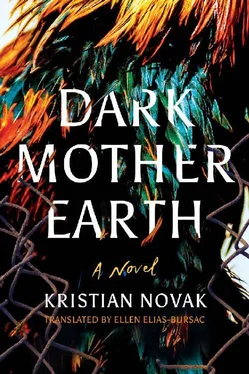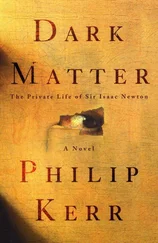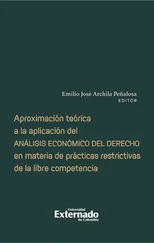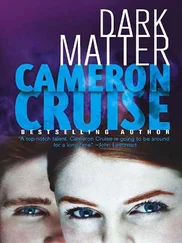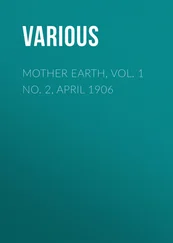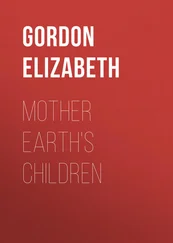“Whenever I get mad at somebody—really, really angry—that person dies,” I said.
“No. Mario ventured off into his own darkness, and Zdravko was gobbled up by his. We were there and we saw,” said Bacawk.
The night he died, Zdravko couldn’t sleep because his wife was out late again. He went out into the yard a few times for a drink of cold water from the well, and because he didn’t want his son—who was lying on the sofa watching TV—to see his impatience. After the lights went out in the house, a car pulled up and his wife got out. She slipped her shoes off at the threshold, softly unlocked the door, and went in on tiptoe. She didn’t turn on the light, she knew her way around in the dark; this was not the first time she’d snuck into the house in the middle of the night. She paused for a moment, trying to hear if her husband and son were sleeping. She went into the bathroom and washed up in the dark.
“She sat down and cleaned both her holes. She’d been poked all over.”
She’d just put on her nightgown when she heard something… as if a pile of books in the living room had fallen down. She clenched her teeth, froze. Finally she let out her breath; after all she’d washed off the evidence. When she snuck back through the hallway, her shoulder brushed something—maybe a coat her husband was airing out. She lay in bed. She couldn’t hear her husband breathing; he seemed quieter than usual. The next morning her son’s scream from the hallway woke her. It had not been a coat but Zdravko brushing up against her. His eyes stared open at the ceiling, and there was a big stain, still wet, on the leg of his pajamas. He left her a note in his shoe: No point in sneaking around in secret anymore. I’ll be watching. She stuffed it into her pocket and ran out to find a neighbor to take Zdravko’s body down.
“He knew by her smell she’d been with another man. He couldn’t stand it, after so many years. So that’s the reason he did it.”
At the second quiet funeral that week, there was no mention of flowers or lanterns. The men talked about how Mesić and Kostić were breaking up Yugoslavia right before their very eyes and how Mario and Zdravko were decent fellows, and the women talked about how they were faring with their tomatoes and lettuce. The loudest was Trezika Kunčec, an elderly woman who had recently begun declaring in a big, pushy voice what she was cooking and doing all day.
Zdravko’s wife was dressed in black, leaning on her son, wiping away tears, and blowing her nose. She wasn’t wearing makeup or nail polish. A week later (after a few more strange things happened), she came to see my mother and brought sugar and some coffee wrapped in white paper. The two completely different widows smoked cigarettes, drank coffee, and talked softly for a long time. The next year, she moved to Čakovec.
I added an explanation to my failed drawing and took it to the graveyard. My sister had asked me a few times to give her my drawings, saying she wanted to leave them at the big church in Čakovec. I declined; someone seemed to be collecting them after I left them on the grave, and that was enough for me. In a few days I learned where they were going: with that strange old lady, Trezika Kunčec.
Bacawk and Chickichee told me it wasn’t my fault, but I found this hard to accept. Nothing had changed, other than my hatred coming back and people dying. I couldn’t tell exactly when I crossed the line with my anger. I was having trouble spending time with Franz, he was leery of soccer balls now, and his stuttering, ugly tongue made me feel sick to my stomach. So when I came home from school, I’d disappear into the attic, where I tried to pour all my anger into an old carved dark wood box about the size of a woman’s makeup case; inside it was a red velvet pillow. I thought I’d be less of a danger to my mother and sister once I’d poured everything I had into the box. The little pillow was just the right size to muffle my shouting, and it was dusty enough that my throat quickly went dry and raspy, and I had to stop. I yelled that I hoped everybody would die, that I pooped on everything, and that I was full of hatred. I figured if even a little part of me felt like that—even a part I couldn’t control—it would be enough to kill somebody, so it had to be shut up inside the box. After that, I’d mash the pillow into the box with every ounce of my strength, using both hands; I’d mash it in until my hands began to shake something terrible, and until I had only enough strength left to slam the box shut fast. The anger would drain out into the black earth overnight, or at least that’s how I imagined it in my mind. That was the rightful place for the anger, in a box and in the earth, not in people.
That Sunday I really paid attention to the sermon, probably for the first time. The priest talked about how we don’t have the right to take our own life, because it was given to us by someone else, and we must never lose hope. He said we must pray for our brethren who had died so tragically, and not be selfish but make an effort to help Croatia and Croats. I was the only one who knew that none of this had anything to do with Mario, or Zdravko, or the village.
“Worraps!”
“Klim!”
“Egattoc!”
“Oknovz Ycracomed!”
Now I was no slower than Franz, and the game developed new rules. I’d say a word backward, and Franz had to point to the thing or pantomime it. When I said, “Klim,” he spread his legs and arms and gestured like he was milking himself. He was really fast, so I began reaching for longer, harder words.
“Lerrab gnub!” Franz immediately wrapped his arms around a huge invisible barrel, made an invisible plug with his fingers, and bunged the container. While he was grinning, I was plotting what to say next.
“Rotcart worrah!” He just rolled his eyes and settled importantly into the seat of the invisible tractor, glancing over his shoulder once in a while to check on the depth of the harrows. I was wild with envy. Nobody could hold a candle to him. And then I found a sticker out on the road, and on it were the words 1,4-butanediol with a black X on an orange background.
“Loidenatub!” I said, and won. Franz squinted, then bugged his eyes wide, then shook his head. He mumbled something in protest, and I stuck the sticker in my pocket and, with hands raised, turned to walk to school, saying over and over, “Loidenatub. Loidenatub, my dear Franz.”
When I heard between fourth and fifth period that Trezika Kunčec had been found hanged, I was relieved because I hardly knew her, so her death couldn’t possibly be my fault. Several hours later I learned that right there on the dresser in her bedroom, next to where she’d tied her apron to the ceiling lamp and made it into a noose, lay three of my drawings. On one of them I’d written about how I didn’t want people to die because of me, and my first and last name. I have no idea why I did that, when the person I had been writing to knew my name. Trezika had been behaving oddly for some time, spouting all sorts of nonsense to our neighbors—for instance, that I was her favorite boy in the village because I was growing up without a dad, and she thought I was lonely.
“He leaves what he draws and writes to his daddy and thinks his daddy will come back. I know nobody likes him. I feel sorry for the boy,” she said.
She’d been taking my drawings from the grave and bringing them home when my mom and sister would miss one. They took the drawings so I wouldn’t be seen as even weirder, while Trezika probably did it because she reckoned it was a good deed.
Franz and I were on our way home from school just as the police drove into the Kunčec yard. While spitting out and choking back spit, he tried to explain how they were giving him shots in his tongue with a needle as thick as a finger and how he hadn’t been able to taste anything for days. I understood him only because he mimed it to me—what came from his mouth was just a mishmash of unformed sounds and sprayed spittle.
Читать дальше
